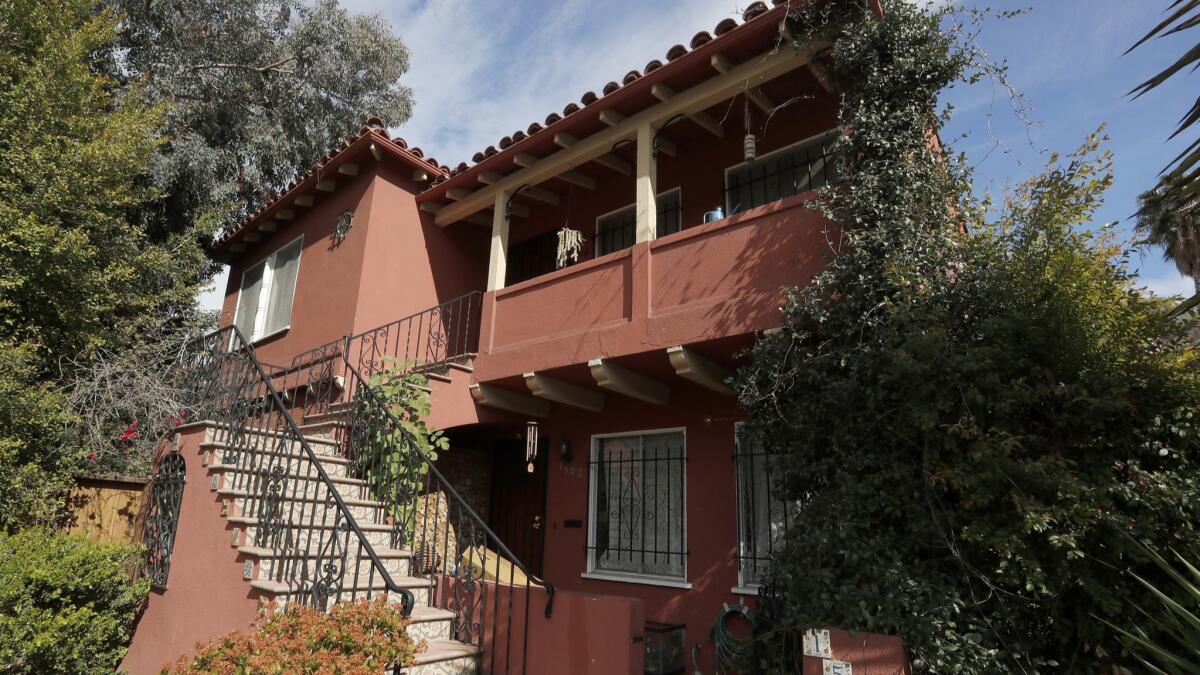Endorsement: Proposition 5 is a cynical, self-serving measure cooked up by the real estate industry. Vote no

- Share via
In their wisdom or their foolishness, California voters upended the status quo in 1978 when they passed Proposition 13 in a stunning taxpayer revolt that shook the nation.
The ramifications of that radical proposition continue to be controversial — and widely misunderstood — today. But this much is pretty simple: Proposition 13 provided relief to homeowners by capping most property tax rates at 1% of a home’s sale price and holding annual increases in assessed value to 2% or less. That was obviously good for people who owned houses (especially as the years passed and their taxes grew more slowly than the market value of their homes). But it took a serious toll on governmental revenues and on the programs funded by those revenues.
Now there’s a proposition on the November ballot that would expand those benefits for homeowners. But this measure — Proposition 5 — goes too far, costs too much and serves no important public purpose. It would skew tax breaks further away from people who don’t own a home or who may be struggling to buy one. It would cost taxpayers billions of dollars each year. What’s more, it’s a cynical, self-serving measure promoted by a single interest group. It deserves a no vote.
Proposition 5 would create not a single new unit of housing.
Proposition 13’s benefits have been expanded before. Less than a decade after the original measure was passed, it became clear that under the new system, homeowners who had been in their houses for a long time now had a disincentive to downsize because they could lose their favorable tax status. So new “portability” rules were approved by voters allowing homeowners over age 55 (and also disabled people and victims of disasters) to apply the artificially low valuation of their old homes to newly purchased ones that cost the same or less. Under today’s rules, an older couple who buy a house for $400,000 in 1990, sell it for $1 million in 2018 and buy a new one for $800,000 can’t be required to pay more in property taxes.
Homeowners may take advantage of that “portability” provision just once, and only in the county where they live or in a limited number of participating counties around the state.
Proposition 5 would expand the portability rules, allowing older people, the disabled and disaster victims to take their Proposition 13 tax advantage with them to any county in the state. And they could do it as many times as they want. Furthermore, the formula would be adjusted to make it more likely that their property taxes would go down if they moved to a comparable or cheaper house. Those changes would obviously reduce significantly the property tax revenues the state collects.
But here’s the particularly offensive and wrongheaded part of the proposal: Even those who bought a house that was more expensive than their current home’s sales price would get a tax break. In other words, the benefit wouldn’t just help older or disabled people downsizing to smaller, less expensive houses. Under Proposition 5, a healthy, wealthy couple in their mid-50s would get a tax break if, after a big promotion or a bequest from a rich aunt, they went out and bought a house that cost $500,000 more than their previous one, or $1 million more. And they could do it again and again.
Whom does that serve?
Funny you should ask. One group it serves is the California Assn. of Realtors, which is the moving force behind this proposition. Because tens of thousands of houses would presumably change hands if the measure were passed, it would mean more commissions for the organization’s members.
Enter the Fray: First takes on the news of the minute from L.A. Times Opinion »
And at what cost? According to the nonpartisan state Legislative Analyst’s Office, local governments would eventually lose $1 billion per year in tax revenues. That means corresponding cuts to programs funded by local property taxes, such as fire departments, sheriffs, local healthcare, libraries and parks. In addition, school districts would lose $1 billion per year.
Everyone wants to help the elderly and the disabled. But Proposition 5 is a bad, costly way of doing so that expands the favorable tax treatment of people — including wealthy people — who are already treated very favorably under Proposition 13.
California is in the midst of a serious housing crisis, and the California Assn. of Realtors would like voters to believe Proposition 5 is part of the solution. But in fact it would create not a single new unit of housing. It is a false promise; it should be rejected.
Follow the Opinion section on Twitter @latimesopinion and Facebook
More to Read
A cure for the common opinion
Get thought-provoking perspectives with our weekly newsletter.
You may occasionally receive promotional content from the Los Angeles Times.










